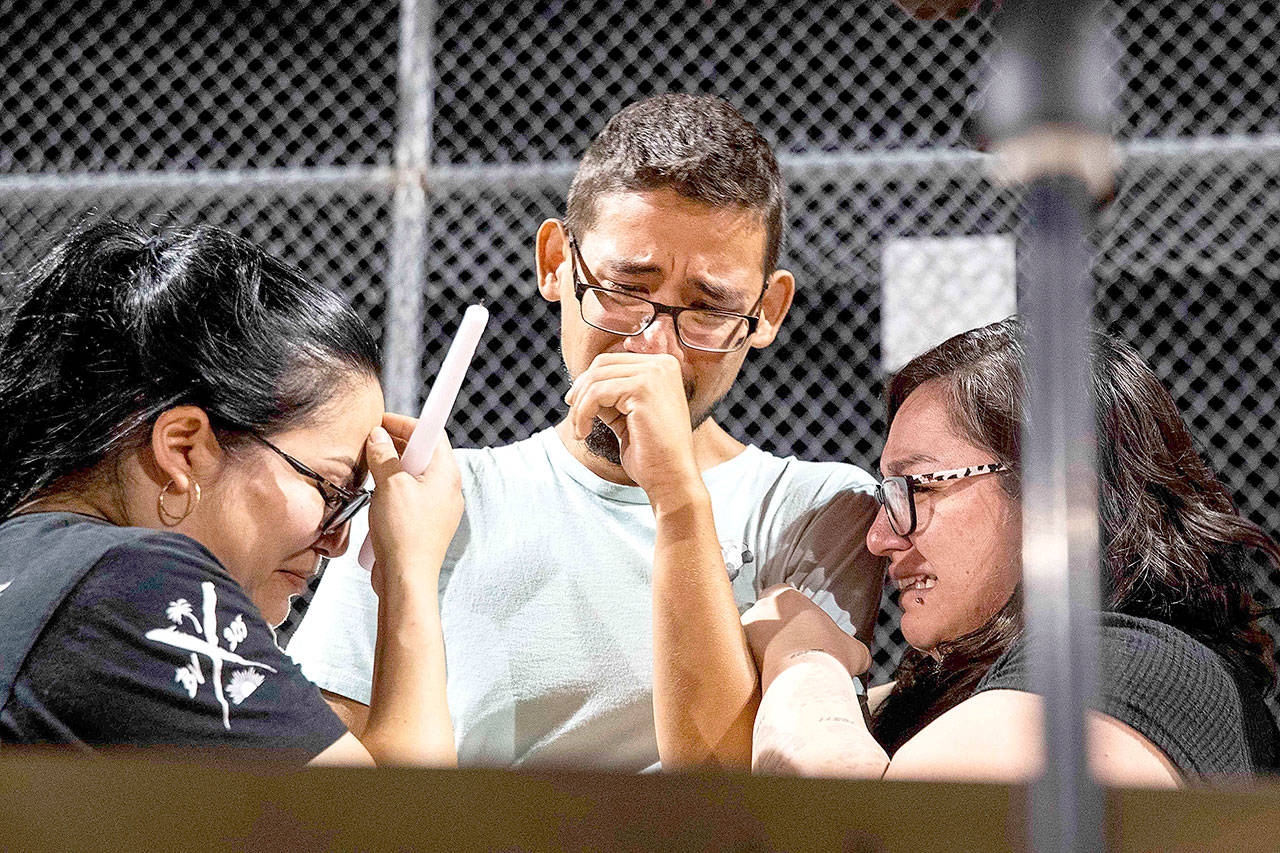By Charles Duncan And Dawson White
McClatchy Washington Bureau
Mass shootings in El Paso, Texas, and Dayton, Ohio, left at least 31 people dead over the weekend. President Donald Trump responded to the massacres Monday with proposals that he says will help authorities stop possible shooters before they kill and get help for those with mental illness.
He also recommended stricter, swifter punishments for mass shooters, and more restrictions on who can have a gun.
“We must reform our mental health laws to better identify mentally disturbed individuals who may commit acts of violence and make sure those people not only get treatment but when necessary involuntary confinement. Mental illness and hatred pulls the trigger, not the gun,” the president said.
The president said he’s enlisting the help of social media companies to aid in early detection.
“We must do a better job of identifying and acting on early warning signs. I am directing the Department of Justice to work in partnership with local state and federal agencies as well as social media companies to develop tools that can detect mass shooters before they strike,” the president said in a speech at the White House Monday morning.
“As an example, the monster in the Parkland High School in Florida had many red flags against him and yet nobody took decisive action and nobody did anything. Why not?” Trump said.
He said people who are found “to pose a grave risk to public safety” should not be allowed to buy guns, adding that officials should be able to take away any guns “through rapid due process.”
“Today, I’m also directing the Department of Justice to propose legislation to ensure that those who commit hate crimes and mass murders face the death penalty and that this capital punishment be delivered quickly and decisively without years of needless delay,” the president said.
At a Walmart in El Paso, Texas, a gunman opened fire on back-to-school shoppers, killing at least 22 and injuring many more. Police arrested a 20-year-old man and say he had posted a racist anti-immigrant manifesto online just before the massacre, according to USA Today.
“The first lady and I join all Americans in pray and grieving for the victims, their families and the survivors. We will stand by their side forever. We will never forget,” Trump said Monday.
Just 13 hours later, another man opened fire at a bar crowded with Saturday night customers in Dayton, Ohio. Nine people were killed and 27 injured in the minute before police killed the gunman, NBC News reports.
Earlier Monday, Trump tweeted a call for lawmakers to strengthen background checks for gun buyers. But he also said the gun control measures could be tied to a deal on immigration reform.
“We must have something good, if not GREAT, come out of these two tragic events!” the president tweeted.
“We cannot let those killed in El Paso, Texas, and Dayton, Ohio, die in vain. Likewise for those so seriously wounded. We can never forget them, and those many who came before them,” Trump said on Twitter.
But gun control legislation and immigration reform have been two of the most contentious debates on Capitol Hill since long before the start of the Trump administration.
According to the Associated Press, “The Democrat-led House has passed a gun control bill that includes fixes to the nation’s firearm background check system, but it has languished in the Republican-controlled Senate. And Trump himself has reneged on previous pledges to strengthen gun laws.”
The House passed the bill in February.
Following the shooting in Ohio on Sunday, Senate Minority Leader Chuck Schumer, D-NY, took to Twitter to urge Senate Majority Leader Mitch McConnell to call the Senate back from summer recess for an emergency session to “put the House-passed universal background checks legislation on the Senate floor for debate and a vote immediately.”
McConnell had expressed his condolences on Twitter earlier in the day, which many users took issue with, citing frustration with his not calling an emergency session.
In March 2018, the president proposed a four pillar plan to improve school safety in response to the shooting at Marjory Stoneman Douglas High School in Parkland, Florida the month before. The plan included firearms training for school personnel, stronger background checks, integrated mental health care and the establishment of the Federal Commission on School Safety.
Not long after, Schumer responded that the plan didn’t go far enough, stating that the White House had only “taken tiny baby steps designed to not upset the NRA,” the Wall Street Journal reported. He called on the Senate to push for universal background checks, federal legislation on protection orders and a debate on banning assault weapons.


